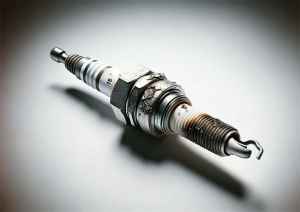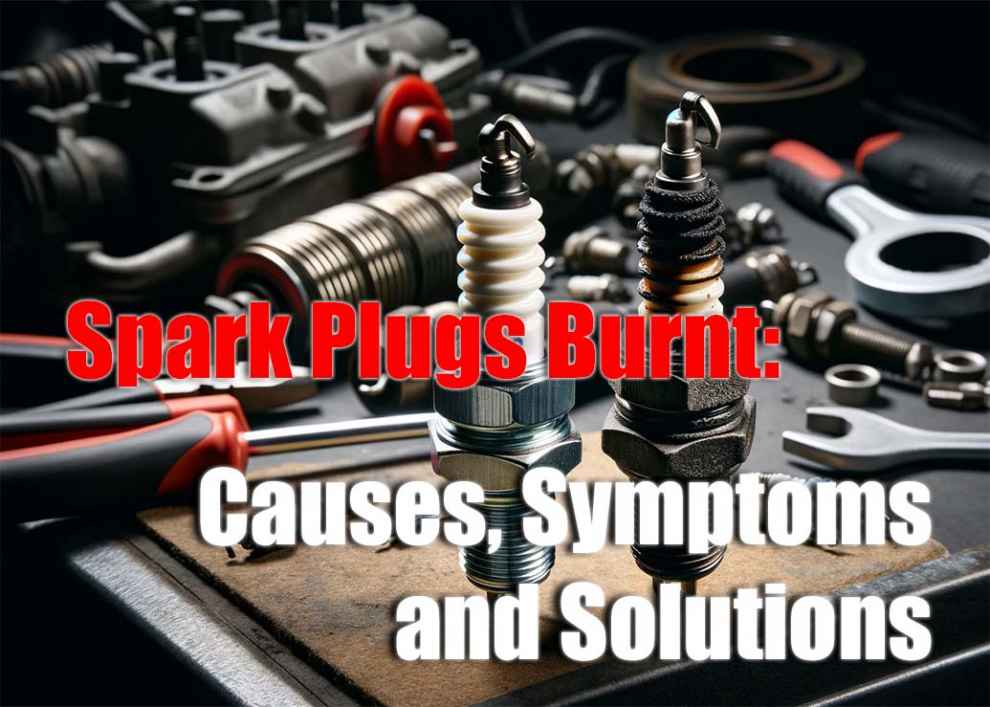Spark plugs are an essential component of a vehicle’s ignition system, providing the spark that ignites the air-fuel mixture in the combustion chambers. When something goes wrong with spark plugs, there can be many consequences, including poor engine performance and increased emissions. One common issue is when spark plugs become burnt. In this article, we’ll discuss what causes spark plugs to burn, the symptoms to look out for, and how to fix and prevent them from burning again.
What Are Spark Plugs and What Do They Do
Spark plugs are small devices that create a spark when electricity passes through them. This spark is used to ignite the air-fuel mixture inside an engine’s combustion chambers. Spark plugs have metal electrodes that transfer electrical energy from the ignition coil into the combustion chamber, which ignites the fuel to generate power for your engine. A typical vehicle requires four or five working spark plugs per cylinder bank, depending on its engine design.
The condition of the automotive spark plugs is pivotal for the smooth operation of the vehicle. When you start the car, the spark plugs work in tandem with the engine’s compression system and injectors to facilitate the combustion cycle. The spark created at the firing end of the plug is essential for igniting the fuel mixture, ensuring an efficient combustion process.
What Does It Mean When Spark Plugs Are Burnt

A problem with the spark plugs often becomes apparent when the plug shows signs of damage, such as a burnt or melted ceramic portion. If there are several thousand miles on the plugs, or if the vehicle’s check engine light comes on, it may indicate that the plugs look damaged or that a blown spark has occurred.
Causes of Burnt Spark Plugs
There are several common causes of spark plug burnout.
-
Overheating: This is caused by an increase in the temperature of the spark plug gap or electrodes due to prolonged exposure to high temperatures and engine revs. It can be caused by various factors, such as too much fuel or air entering the combustion chamber, an incorrect spark plug heat range being used, or a build-up of carbon deposits on the electrodes due to incomplete combustion.
-
Carbon Buildup: Carbon buildup on the electrodes is another common cause of spark plug burnout. As fuel is not completely burned during combustion, it leaves behind carbon deposits which insulate the heat and prevent proper electrical current from flowing through the electrode gaps and into the combustion chamber. This can cause overheating and eventually lead to spark plug burnout if left unchecked for too long.
-
Oil Contamination: Oil contamination occurs when oil from leaking valves, gaskets, or seals enters the cylinder head and coats the spark plugs with oil. The ceramic body of a spark plug can also be compromised if oil from a leaking valve cover on the side of the engine contaminates it. This prevents electricity from passing through the spark plug electrodes and can cause them to burn out.
-
Incorrect Spark Plug Heat Range: The heat range of a spark plug determines how much heat it can dissipate without burning out. If the wrong heat range is used, the spark plug may be unable to dissipate enough heat, overheat, and become damaged.
-
Incorrect Spark Plug Gap: Spark plugs are designed with a specific gap size which determines how large the electrical current needs to be for it to ignite fuel in the combustion chamber. If this gap is too large or small, it will result in poor performance or even burnout.
Symptoms of Burnt Spark Plugs
The most common symptoms of burnt spark plugs include:
-
Misfires: This occurs when a spark plug fails to ignite fuel in the combustion chamber, resulting in reduced power and an increase in emissions.
-
Poor Acceleration: This is caused by incomplete combustion due to misfires caused by faulty spark plugs. It can also increase emissions as unburnt fuel exits the exhaust system.
-
Reduced Fuel Economy: Poorly functioning spark plugs result in an increase of fuel being used by the engine which causes a decrease in fuel economy.
-
Rough Idling: This is caused by the engine not receiving enough energy to maintain its speed, resulting in a rough or jerky idle.
-
Engine Knocking: This occurs when fuel is not completely ignited in the combustion chamber and instead ignites after the exhaust valve has opened, causing a knocking sound.
Solutions for Burnt Spark Plugs
The most effective solution for burnt spark plugs is to replace them with new ones designed for your specific vehicle make and model. It is recommended to use original equipment manufacturer (OEM) spark plugs as these are designed specifically for your vehicle’s engine and will provide optimal performance and longevity. Along with replacing spark plugs, it is important to inspect other components of your ignition system such as ignition coils, plug wires, and distributor capsrotors to ensure they are all functioning properly. Additionally, an engine diagnosis may be required to diagnose any underlying issues that could have caused the burn spark plug or misfiring issues. It is also important to repair any damaged components, such as gaskets or seals, before replacing spark plugs, as this can help prevent future burnout issues.
How to Prevent Burnt Spark Plugs
In order to prevent spark plug burnout, it is important to take the following steps:
-
Regular Maintenance: Regular maintenance such as oil changes, air filter replacements, and spark plug replacements can help ensure your vehicle’s engine runs smoothly and efficiently.
-
Using the Correct Spark Plugs: It is essential to use spark plugs designed for your specific vehicle make and model. OEM spark plugs are recommended as they are specifically designed for your engine and provide optimal performance and longevity.
-
Checking and Replacing Spark Plugs as Needed: If you notice any of the symptoms mentioned above, it is important to check your spark plugs regularly or have them checked by a professional technician. It is also important to replace them when necessary in order to prevent further damage or misfiring issues.
-
Avoiding Overheating and Engine Damage: Make sure that all cooling systems in your vehicle, such as radiators, fans, thermostats, and hoses, are working properly in order to avoid overheating, which can cause long-term engine damage, including burnt out spark plugs.
Conclusion
In conclusion, maintaining the integrity of your car spark plugs is essential for the smooth operation of your vehicle. Burnt spark plugs can lead to a slew of problems, from poor acceleration to decreased fuel economy and even potential engine damage. By understanding the symptoms and causes of plug wear, such as the appearance of the ceramic body or the blown spark, you can take preemptive steps to mitigate these issues. Always ensure you take the car for regular check-ups, use the correct type of iridium or other automotive spark plugs, and address any problem with the spark plugs promptly. Doing so will preserve the condition of the spark plugs and contribute to the longevity and reliability of your vehicle’s performance.
FAQ
1. How can I tell if a spark plug is burnt?
A burnt spark plug might show signs of damage such as a worn electrode or a cracked ceramic portion. If the plug shows evidence of overheating or oil contamination, it’s a sign that it’s burnt out.
2. What should I do if my check engine light comes on?
If your check engine light illuminates, it’s a sign that there could be a problem with your vehicle’s engine or ignition system, including the spark plugs. You should take the car to a professional mechanic for a diagnostic.
3. How often should spark plugs be replaced?
Generally, spark plugs should be inspected every 30,000 miles and replaced as needed. High-quality iridium spark plugs can last longer, but always refer to your vehicle’s manual for specific recommendations.
4. Can I prevent my spark plugs from burning out?
Yes, regular maintenance, using the correct spark plugs, and ensuring proper fuel mixture and combustion cycle can prevent your spark plugs from burning out. Also, keep an eye on the coolant levels and the valve cover condition to prevent overheating.
5. Does a burnt spark plug affect fuel economy?
Absolutely, a burnt spark plug can result in poor fuel combustion, leading to inefficient fuel consumption and reduced fuel economy. It’s important to address the issue promptly to maintain optimal performance.

 Using the Correct Spark Plugs: It is essential to use spark plugs designed for your specific vehicle make and model. OEM spark plugs are recommended as they are specifically designed for your engine and provide optimal performance and longevity.
Using the Correct Spark Plugs: It is essential to use spark plugs designed for your specific vehicle make and model. OEM spark plugs are recommended as they are specifically designed for your engine and provide optimal performance and longevity.
Add Comment